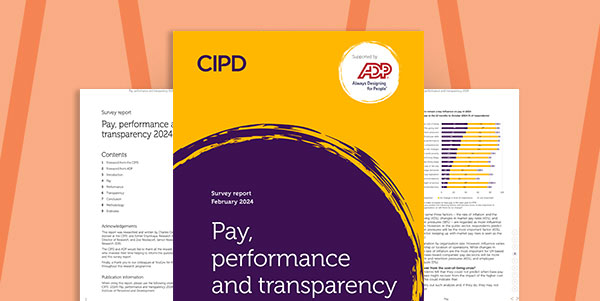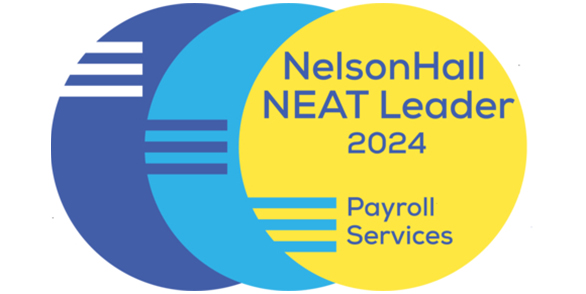Payroll is the process of paying your people for their work. Usually managed by HR or accounting, it’s much more complicated than you might think. It involves calculating employee wages, withholding taxes and myriad deductions, and processing payments to employees' accounts. It’s one of the most essential aspects of a company’s financial operations and comes with considerable challenges.
One of the biggest hurdles companies face when managing payroll is staying compliant with the complex, ever-shifting world of tax regulations and legal labour requirements. It’s not unusual for rules to change each year, which can be a recipe for accidental non-compliance. Payroll software that automates the process can help mitigate this costly business challenge.
Companies managing dispersed workforces face headaches when it comes to payroll and navigating various labour laws and unique local tax regulations. Again, payroll software can help you stay on the right side of the law and simplify the process.
Managing employee benefits and compensation is another challenge. Essential aspects such as pensions, benefits, travel allowances, and insurance require strategic thinking to balance cost-effectiveness with employee satisfaction effectively. You’ll also need to be mindful of data protection laws like GDPR to keep employees’ sensitive information secure.
Table of Contents
Compliance issues
Keeping updated with HMRC’s ever-evolving tax legislation and labour laws can be difficult. The result is non-compliance errors and hefty penalties. It’s your business’s responsibility to keep track of news and updates, and it often requires specialised knowledge to stay on the right side of the law. Using payroll management software or outsourcing your payroll is a more straightforward solution.
Another compliance challenge is accuracy in wage calculations and deductions. This process demands frequent reviews, audits, and check-ins with staff to avoid costly mistakes. Employee classification and the rules around ‘disguised employees’ (IR35) are perennial problems for UK businesses. If your workforce process requires contractors, you must ensure they’ll be classified correctly within IR35 or outside IR35–and it’s often complicated to ascertain which. Payroll software automatically calculates this through guided workflows, so you know you’re on top.
Data accuracy and security
Accurate employee records and payroll data are crucial to complying with UK regulations and avoiding penalties. Your reporting will provide the bulk of the evidence for compliance, so your business needs to keep accurate, up-to-date payroll and employee records.
Implementing cloud-based systems, using two-step verification, limiting access to authorised users, and encrypting data can help you avoid the risk of data breaches or cyber-attacks. It’s also important to have a data breach strategy in place in case anything happens. It’s your responsibility to ensure your staff’s data is protected under the Data Protection Act 2018 and GDPR, making compliance non-negotiable and punishable by fines or worse.
Time and resource constraints
Payroll can be a demanding task when managing your business, and allocating sufficient time and resources to the process can be tricky. Manual solutions bring their own challenges and add further complexity to an already intricate process. Calculating wages, overtime, and bonuses accurately is a headache for HR teams, as is handling deductions, benefits, and taxes correctly.
As you scale your business, it can prove to be even more complex. Additionally, managing payroll for hourly and salaried employees, plus accounting for overtime and contingent workers, might be beyond your organisation’s scope, which leads to overburdened HR teams and errors being made.
Technology and automation
Payroll software can lighten the administrative load, leading to increased efficiency–and freeing up time so you can get back to focusing on your business. Implementing and integrating new payroll systems isn’t without its share of difficulties, so it’s important to consider functionality and integration when shopping around.
Integration with other HR systems is crucial (for example, time tracking) but demands lots of coordination and testing to ensure things run smoothly. A cloud-based solution provides an additional layer of security while being flexible and allowing for scalability. You’ll also need to ensure that you adapt to technological changes and regular updates: an effective payroll software (or outsourced provider) will do this for you.
Employee self-service and communication
Providing accessible, transparent payroll information to employees can help minimise challenges for your HR teams. Self-service refers to the portal or format in which employees access their essential payroll information. Efficient payroll software will provide this as part of the package, which helps address employee enquiries, flag issues, and manage disputes effectively–as digital reports are available to both parties.
Enhanced communication channels for payroll-related issues and quick, painless problem addressing inspire employee confidence and help you gain a level of trust and transparency with your workforce that shouldn’t be underestimated when it comes to staff retention.
Managing remote and distributed workforces
International organisations face inveterate challenges when handling payroll for remote and dispersed teams. From time tracking across different time zones to complex local tax legislation and compliance with unique local labour laws, managing distributed workforces is an increasingly difficult challenge to navigate for businesses that operate globally.
One way to overcome these challenges is through streamlined communication channels and enhanced coordination. Payroll software is designed with this in mind, with user-friendly dashboards and workflows that simplify these challenges. They enable your workforce to have visibility over payroll and communicate easily if any issues arise. Plus, automated payroll software can instantly determine the correct withholdings and international tax codes, saving you time and money in the process.
Payroll processing errors and discrepancies
Another challenge that companies like yours face is identifying and correcting inaccuracies as they appear. Manual and outdated systems are ripe for human error, and there’s minimal functionality to flag issues as they arise–or indeed work out what’s gone wrong. Outsourced payroll software saves valuable time and resources, reducing the hidden costs of payroll mistakes and non-compliance.
Quality control measures can minimise errors, and these should be the foundation of your payroll strategy. Again, digitalising and automating the process reduces inaccuracies, leading to streamlined handling of employee disputes and discrepancies. The result is better employee relations and time saved on complex, needless corrections. Many companies prefer to outsource this task to a payroll provider to guarantee accuracy, compliance and round-the-clock support.
Budgetary constraints and cost management
Managing payroll costs and budgets is a chief concern for many businesses. Many believe that managing payroll in-house is a cost-saving tool; however, it often requires more expertise and administrative support than teams can realistically manage. Using payroll software frees up time and lets you identify opportunities for cost savings and efficiency gains in real-time, with live data to support your decision-making.
Balancing the cost of running payroll against your business priorities is crucial: it’s a time-consuming, often mundane, and incredibly complex system to set up and manage. Outsourcing or using payroll software reduces this burden, which enables your teams to focus on broader organisational priorities.
Legal and regulatory risks
There are many risks attached to payroll management, especially when it comes to tax legislation and labour laws. You must ensure that you pay employees the Minimum Wage (and if you’ve opted into the voluntary Living Wage, this should be accounted for). Overtime regulations require you to keep track of employee overtime and pay for any additional hours worked. GDPR and Data Protection are designed to safeguard your people’s data and provide additional challenges regarding payroll and employee data.
Non-compliance with any labour or tax legislation can result in hefty fines and burdensome tribunals. You’ll also need to seek legal counsel and expert advice if you're at risk of non-compliance or are audited for any reason. To mitigate these risks, consider an outsourced payroll solution.
Payroll software calculates minimum wages, overtime, and any benefits owed automatically. Continuous updates ensure any changes in UK laws are reflected in your payroll, ensuring absolute compliance. If you’re audited, you can also rely on support provided by specialists who deal with auditing daily and provide priceless expertise.
Accurate and cost-effective global payroll services can bolster staff satisfaction, reduce your non-compliance risks and save on resources–while ensuring everything runs smoothly. That gives you more time to focus on your people and your business.
To minimise the risks of these challenges, look for a company that prioritises innovation, scalability and efficiency through integrations with other HR software. ADP is the preferred choice for tens of thousands of global businesses, including Amazon, Cisco and Paypal. Ready to take your payroll process to the next level? Discover ADP's global payroll solutions.




